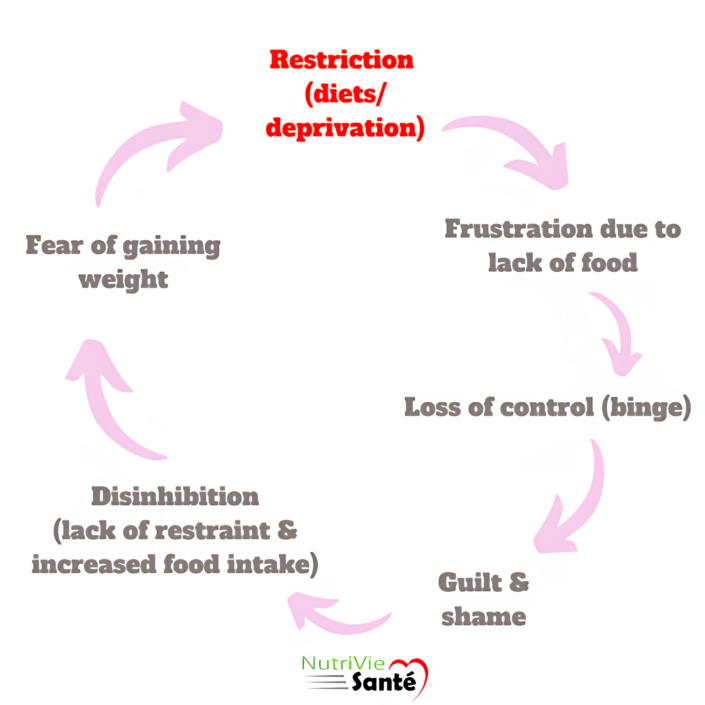Disordered eating
Disordered eating does not fit the diagnostic criteria of eating disorders set by the DSM V but it still involves unhealthy thoughts and behaviours around food and body. For example, here are some warning signs of disordered eating patterns:
- Chronic yoyo dieting and rigid rules around food
- Recurrent emotional eating
- Binge-eating episodes
- Never being able to honour hunger and fullness cues
- Excessive preoccupation with body weight and shape (having to weigh yourself all the time, excessive body-checking behaviours in the mirror, pinching certain body parts, etc. )
- Skipping meals intentionally despite being hungry and restricting certain foods or food groups
- Food guilt
Although disordered eating cannot be classified as eating disorders, it does not mean that it warrants less attention as it can still cause detrimental impacts on your physical, mental and social well-being .
For instance, it can lead to several nutrient deficiencies, chronic fatigue, irritability, lack of concentration, strained relationships with your loved ones, increased isolation .


